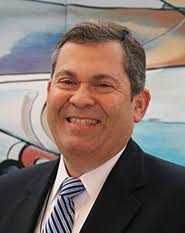
Advocacy is one of the top reasons most orthodontists are members of a professional dental organization. Advocacy can be accomplished through a number of portals from making contact with state representatives to supporting specific issues before the legislature by donating to advocacy efforts. The following is a roundup of dental related bills before the legislatures within the NESO states:
Rhode Island Legislature introduces Medical Loss Ratio Bill
The Rhode Island Senate has proposed Bill 322 that would establish a medical loss ratio for dental plans in the state. Bill 322 is being introduced for an 85% Medical Loss Ratio for insurance companies, a direct consequence of Massachusetts passing Question 2.
Sen. Bill 322 is similar to the law currently being implemented in Massachusetts, which set the medical ratio at 83%. A medical loss ratio would require dental insurers to spend a set percentage of premium dollars on providing patient care, otherwise the difference is refunded.
More than 72 percent of Massachusetts voters approved a medical loss ratio, creating momentum and support for other states to establish similar measures. In 2023, 11 additional state dental societies, including Rhode Island, were able to introduce medical loss ratio legislation.
Maine introduces bill in the 131st Maine Legislature that would prohibit dentists from offering healthcare credit platforms such as CareCredit in their practices
An Act to Protect Consumers from Predatory Medical Credit Card Providers establishes the following requirements related to credit cards designed specifically for the payment of health care services, including dental care.
- It prohibits a health care provider from offering or arranging for a medical credit card for a consumer, or establishing or otherwise completing any portion of an application for a medical credit card on a consumer’s behalf, in that health care provider’s office, treatment area or other health care setting.
- It prohibits a health care provider from offering, arranging for or establishing a medical credit card for a consumer that contains a deferred interest provision in the medical credit card contract.
- It prohibits a health care provider from charging the costs for health care services to a medical credit card at any time prior to the date upon which health care services are rendered or costs are incurred.
- It requires a health care provider to screen a consumer for eligibility for charity care before accepting payment from a consumer using a medical credit card.
- It provides that a creditor that extends a medical credit card to a consumer and is attempting to collect unpaid payments in connection with the medical credit card from a consumer is subject to the provisions of the Maine Fair Debt Collection Practices Act.
Dentists continue to be active in the Massachusetts Legislature with 2 bills
In Massachusetts the following dental related bills remain with the Committee on Health Care Financing, which means they are still active in the legislative process. The Committee on Health Care Finance has until March 27, 2024, to take further action on these specific dental bills currently under their review: House Bill 3880: An Act relative to dental hygienist reciprocal licensure and House Bill 300: An Act establishing a dentist diversion program.
House Bill 3880: An Act relative to dental hygienist reciprocal licensure would establish a process allowing for dentists licensed and practicing in another jurisdiction (including a foreign country) for at least 5 years to be licensed to practice as a dental hygienist in the Commonwealth of Massachusetts without additional examination. This would assist with the shortage of dental hygienists and access to care of all patients.
House Bill 300: An Act establishing a dentist diversion program directs the Board of Registration of Dentistry (BORID) to develop and regulate the implementation of remediation programs for licensed dental professionals at risk of losing their licenses due to illness, substance use or other mental health disorders. This legislation allows use of such programs as alternatives to traditional disciplinary actions.
If you know of any other dental related bills before the legislatures in any of the NESO states please contact me at metdent@rcn.com or call 508-875-3800 so I can properly publicize the effort needed to either pass or oppose the bills. Only through each and every NESO member’s efforts can we successfully advocate for the orthodontic and dental professions.
L. Jeffrey Lowenstein, DMD
NESO Legislative Correspondent
